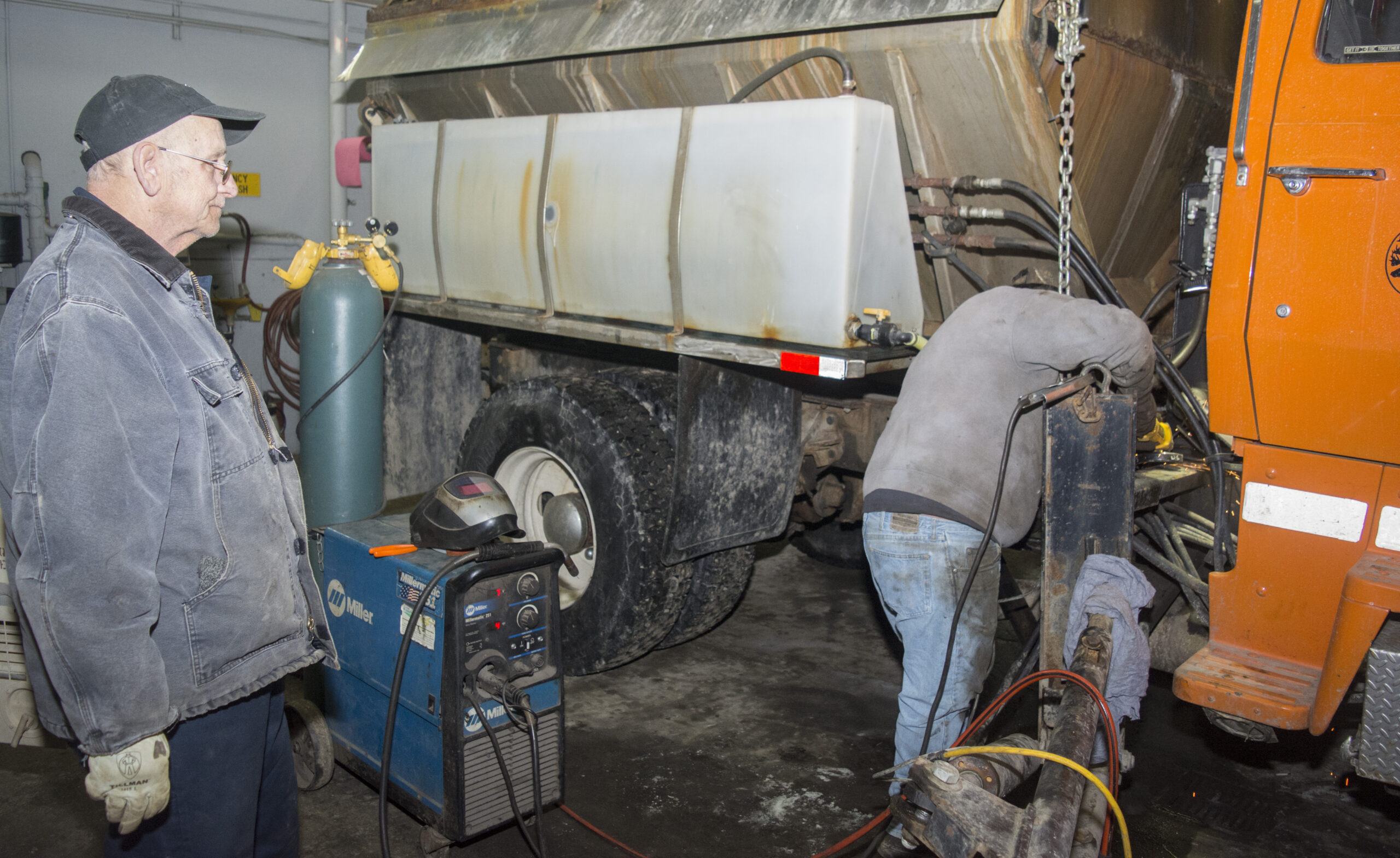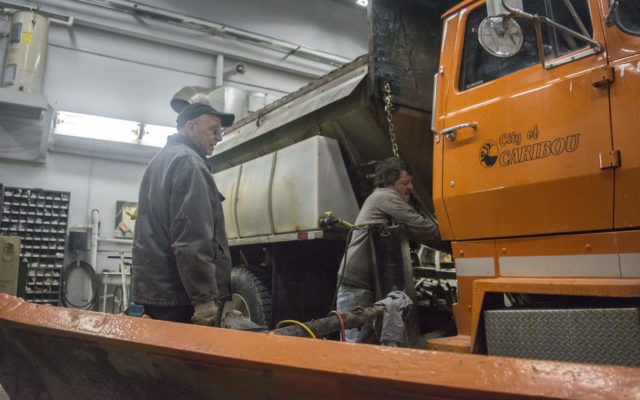
CARIBOU, Maine — Caribou Public Works Director Dave Ouellette said the Jan. 4-5 winter storm was the worst his crew has handled since 2008. As a result, he and 15 crew members put in “50 hours of overtime,” clearing the roads.
Ouellette and his staff started prepping for the storm at 7 a.m. Thursday and didn’t leave work until midnight. Crews then reported back for work at 7 a.m. Friday, where they again stayed until midnight, and did the same on Saturday.
Even though they received seven hours off each night, Ouellette said his crew maybe spent half of that time sleeping.
“You get a break to go home, but then you have 20 inches of snow in your door yard. You also have to shower and make something to eat, and then try to get some sleep,” he said. “Then you’re back to work at seven in the morning.”
He said four hours of sleep “is enough if you only do it once in a great while,” and that it’s a good “battery charger” for crew members who have been putting in extensive overtime.
While the storm dumped over 19 inches of snow in Caribou, Ouellette said that wind was easily the worst aspect of plowing the roads, as it pushed snow from banks back onto the road.
“The wind created whiteout conditions” he said. “It was hard to see anything, and it was blowing so hard that we struggled to keep some of the country roads passable.”
Ouellette said road maintenance involves a lot more than just plowing roads, and that it often involves trimming down and pushing back snow banks. Plow truck drivers need to be going “at least 20 or 25 miles an hour” to create enough momentum to push the snow over the banks, according to Ouellette. The task is far more difficult when high winds are working against the crew.
Without excessive winds or slush-covered roads, Ouellette said it takes each of his six plow trucks four hours to cover their section of the city.
“That’s working four hours straight,” he added. “It doesn’t include stopping for a soda or coming back to use the bathroom.”
Extreme weather, however, can extend that time by up to two hours.
“Each truck has a country section and a section in the city,” he said. “Multiple things can slow them down, like whiteout conditions, traffic, and slippery roads.”
Plow drivers exercise a great deal of caution in whiteout conditions, particularly when they need to dump snow in a bank after an intersection.
“If cars have a tough time getting around, our trucks do too,” Ouellette said. “They’re not bulldozers. So when a truck approaches an intersection, they have to dump [the snow from their plow blades], and it could be so slippery that the truck doesn’t want to turn. If it’s slippery, trucks will have a hard time making the turn and they might have to go forward and backward several times before they get to a point where they can dump the snow.”
If a driver needs to do this during whiteout conditions, Ouellette said it leaves them open to an accident.
“It’s tough,” he said. “There’s not much anyone can do.”
To reduce the risk of an accident, all of the Public Works Department’s winter vehicles are equipped with strobe lights so they are as visible as possible to other drivers.
Ouellette said the best advice he could give to members of the public is to avoid traveling during any major storm.
“Get everything you need at the grocery stores and get home,” he said. “Stay off the road as much as you can. It helps everybody, not only the people driving the plow trucks.”
He said low visibility and high wind can easily lead motorists to hit drifts and spin off the road.
Public works employees are not allowed to stop and help pull motorists out of a ditch or snowbank if they get stuck, as it poses an insurance liability, according to Ouellette.
“We’re up to 75 hours of overtime so far this month,” he said on Jan. 9, adding that the crew was going to work on snow removal Monday night, but were unable to due to the additional snow.
The crew will get little time to rest as they also will need to prepare to handle the rain and freezing mix predicted for the end of this week. If banks are not pushed back far enough before the rain hits, water will not be able to reach the drains which could cause flooding, Ouellette said.
“We have a few days to widen out the roads and push the banks back so that water can get to the storm drains,” he said.
- Caribou Public Works employee Keith Ballard, right, grinds a brake on a salt truck Thursday morning as Gil Dufour looks on. Both are preparing to weld the brake to ensure that there are no issues during the storm arriving later in the day. (Christopher Bouchard)








